I have producer app with 2 separate instances (p1, p2), and consumer app with 2 separate instances (c1, c2).
Producer p1 connects to exchange with topic= t1, queueName =name1.
Consumer c1 connects to exchange with topic= t1, queueName =name1.
Producer p2 connects to exchange with topic= t2, queueName =name1.
Consumer c2 connects to exchange with topic= t2, queueName =name1.
I see in RabbitMQ GUI that I have 2 exchanges but only 1 queue. Instead that c1 will receive messages from p1 only, and c2 will receive messages from p2 only, RabbitMQ is doing round robin on messages between c1 and c2. So the messages I send from p2 are being received both by c1 and c2.
I thought that in RabbitMQ the correlation is multiple queues per exchange, and the behavior here is unexpected. Why?
